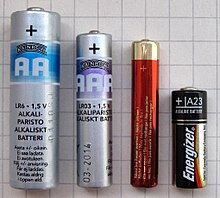Voltage is a fundamental concept in the field of electromagnetism, and it is defined as the difference in electric potential between two points. This potential difference is essential for the flow of electric current and is measured in volts (V) in the International System of Units (SI). The volt is named after the Italian physicist Alessandro Volta, who invented the voltaic pile, possibly the first chemical battery.
The concept of voltage can be understood as electric pressure or potential difference, and it is a key parameter in electrical circuits and systems. It is commonly used to describe the voltage dropped across an electrical device, such as a resistor. This voltage drop is the difference between measurements at each terminal of the device with respect to a common reference point or ground.
Voltage can be caused by various factors, including the build-up of electric charge, electromotive force, electrochemical processes, and pressure-induced effects. In a static electric field, voltage corresponds to the work needed per unit of charge to move a test charge between two points. On a macroscopic scale, it can be caused by a variety of phenomena, such as cells and batteries, as well as the piezoelectric effect.
The understanding of voltage is crucial in the design, analysis, and operation of electrical and electronic systems. It plays a central role in various applications, including power generation, transmission, and distribution, as well as in electronic devices and circuits. Voltage is also an important consideration in the safety and regulation of electrical systems to prevent hazards and ensure proper functioning.
In summary, voltage is the difference in electric potential between two points and is measured in volts. It is a fundamental quantity in electromagnetism and is essential for the flow of electric current in electrical and electronic systems. The concept of voltage has diverse applications and implications in various fields, making it a fundamental aspect of modern technology and infrastructure.
For more detailed information, you can refer to the Wikipedia page on Voltage:
Citations:
[1] https://en.wikipedia.org/wiki/Voltage
This article needs additional citations for verification. (February 2018) |
Voltage, also known as (electrical) potential difference, electric pressure, or electric tension is the difference in electric potential between two points. In a static electric field, it corresponds to the work needed per unit of charge to move a positive test charge from the first point to the second point. In the International System of Units (SI), the derived unit for voltage is the volt (V).
| Voltage | |
|---|---|
 Batteries are sources of voltage in many electric circuits. | |
Common symbols | V , ∆V , U , ∆U |
| SI unit | volt |
| In SI base units | kg⋅m2⋅s−3⋅A−1 |
Derivations from other quantities | Voltage = Energy / charge |
| Dimension | |
The voltage between points can be caused by the build-up of electric charge (e.g., a capacitor), and from an electromotive force (e.g., electromagnetic induction in a generator). On a macroscopic scale, a potential difference can be caused by electrochemical processes (e.g., cells and batteries), the pressure-induced piezoelectric effect, and the thermoelectric effect. Since it is the difference in electric potential, it is a physical scalar quantity.
A voltmeter can be used to measure the voltage between two points in a system. Often a common reference potential such as the ground of the system is used as one of the points. A voltage can be associated with either a source of energy or the loss, dissipation, or storage of energy.
English
Etymology
volt + -age, ultimately derived from the name of Alessandro Volta, inventor of the modern battery.
